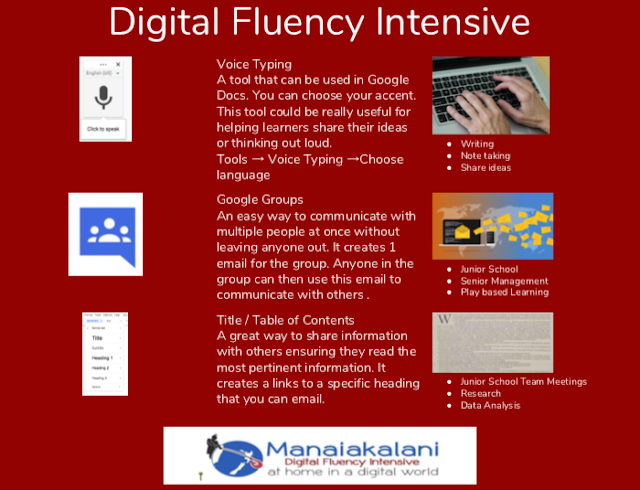I'm back in the classroom! It is exciting to be able to implement some of my learning this year including learning through play, digital curriculum and Tapasa.
What I am most concerned with is ensuring I create a good balance of learning through play and the development of oral language skills with the fundamentals of learning and teaching i.e. pre reading reading and writing skills.
I want to ensure that the learners are transitioned to school and not suddenly faced with formal teaching which in many cases will be the exact opposite of what our learners would have experienced in an ECE environment.
As we are in the last term of school my planning will be around the key competencies and developing this in our Tamariki. I am currently looking at how I can adequately reflect this in my planning and accomodate this in my classroom.
For my class site and planning, I have divided the term into 2 week blocks focussing on 1 big book and having all learning through play, Digital activities and games/ pe sessions related to the book.
The morning session will be focus time with some pre - phonics work, key competencies, maths and pre reading and writing skills.
Some ideas:
Pre phonics - guess the sound, tap the rhythm, I spy
Key competencies - Relating to other, Managing self
Maths - colours, shapes, 1 to 5 number knowledge, same but different
Reading - listening and enjoyment, how to hold a book, telling own stories using pictures
Writing - name, fine motor skills, crossing midline
Digital - Finding the class site, how to hold the ipad
My class site is simple but hopefully effective:


















